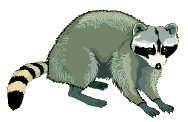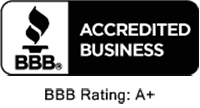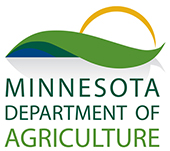Minneapolis Raccoon Removal MN | MN Raccoon Control
Raccoons can become a huge nuisance very quickly. As with all animals, they usually just do what they need to do to survive. Oftentimes this means ripping a hole in your roof and living in your attic. Once inside, they can really trash the place. These animals can knock over garbage cans, tear up your lawn, nest in your chimney, attics, or under your deck, and also ruin gardens.
They will even rip up the duct work, tear the insulation off of pipes, rip up wires, trample or pull up the insulation, rip off any paper lining, and sometimes even damage wood joists.
The bigger problem may be the bio-hazardous contamination they cause. They urinate and defecate in the attic, and the droppings can contain raccoon roundworm – transferable to humans, or diseases such as canine distemper, transferable to your pets. They also may bring in the fleas and other parasites associated with wild animals. It’s just the way they are.
Infectious Diseases of Raccoons
Raccoons in the United States are known to carry infectious diseases that can be transmitted to humans and animals that have contact with raccoons or their waste. Both young and mature raccoons can shed viruses, bacteria and parasites that when exposed to humans and animals can result in infections and disease. People should not handle raccoons or their waste without protection and appropriate training.
Raccoons expose humans to disease when handled or if there is exposure to bodily secretions or feces. Saliva, urine, feces and bites or scratches are the most common routes of exposure. Contamination of the environment and any materials used by the raccoons can also be a source. People who handle raccoons, who are bitten, scratched or exposed to their waste, should be aware of the potential health hazards.
Any person who has handled a raccoon of any age should consult a physician immediately. Anyone who has participated in the handling, care, feeding and cleaning of any raccoons should be evaluated for exposure to the following diseases and be informed of all the potential human health risks caused by wildlife and raccoons.
• Rabies: Rabies is a virus that is spread by contact with the saliva of a rabid animal or by being scratched or bitten by a rabid animal. Raccoons are one of the most common species to carry rabies.
 The Infectious Path of the Rabies Virus
The Infectious Path of the Rabies Virus
- Raccoon is bitten by a rabid animal.
- Rabies virus enters the raccoon through infected saliva.
- Rabies virus spreads through the nerves to the spinal cord and brain.
- The virus incubates in raccoon’s body for approximately 3-12 weeks. The raccoon has no signs of illness during this time.
- When it reaches the brain, the virus multiplies rapidly, passes to the salivary glands, and the raccoon begins to show signs of the disease.
- The infected animal usually dies within 7 days of becoming sick.
• Baylisascaris procyonis: (Bay-lis-asc-aris) The Raccoon Ascarid or roundworm is a parasite of the intestines of raccoons that sheds large numbers of eggs in the feces. Feces contaminated with eggs can become infective to humans after 2-4 weeks of incubation. Exposure to feces during handling, feeding and cleaning can cause a serious disease known as Visceral Larval Migrans and infection of the central nervous system. Oral ingestion of infective stages of eggs is the primary route of exposure.
• Giardiasis: Giardia species is a microscopic protazoal infection that can be transmitted by a wide variety of animals. Raccoons can carry this organism in their feces and contaminate water, soil and surfaces. Humans can contract Giardia by ingestion of infective cysts from contaminated animals and sources. Patients can develop severe gastrointestinal symptoms.
• Leptospirosis: Leptospira species is a bacterial infection that many animals and humans can contract and transmit. There are several different species of Leptospira that are found in wildlife, which is the primary source of contamination of the environment with these bacteria. Raccoons can shed Leptospirosis in their urine and secretions. Exposure of these excretions to open wounds or orally can cause infection to humans.
• Other Diseases: Other bacterial diseases (such as Salmonella or E. Coli), fungus and rare parasites can also be a risk for illness in humans. People who handle, feed and clean up waste should be aware of the potential health hazards and practice aggressive hygiene and sanitation to prevent exposure of skin, eyes, mouth and body to infection. Physicians can assess individuals who may have been exposed and recommend appropriate actions to prevent disease.
Remove Raccoons From Your House or Property
For the average homeowner, unfamiliar with trapping raccoons, it is advisable to hire a professional wild animal control expert to remove the animal. The professional will have the proper equipment to accomplish the task and will be able to tell if a trapped female is nursing its young. This is very important because you don’t want to leave young behind to starve.
The professional will also have the means to euthanize the animals, since releasing them elsewhere is prohibited by law. Released animals may return or present a problem to someone else and, in fact, the animal you have trapped may have been deliberately released near you. Release of animals is a major factor in the dissemination of numerous diseases to other animals.
Got a Raccoon Problem?
Safely Remove Raccoons from your Minnesota home. We Humanely Remove Raccoons from your House or Property.
The best prevention advice is to stay away from wild animals, live or dead, and call a Minnesota Wild Animal Removal Expert immediately. If your pet is acting ill or strange, contact your veterinarian immediately.
Information For:
Raccoon Latrine Clean-up [PDF, 111 KB, 1 page]






